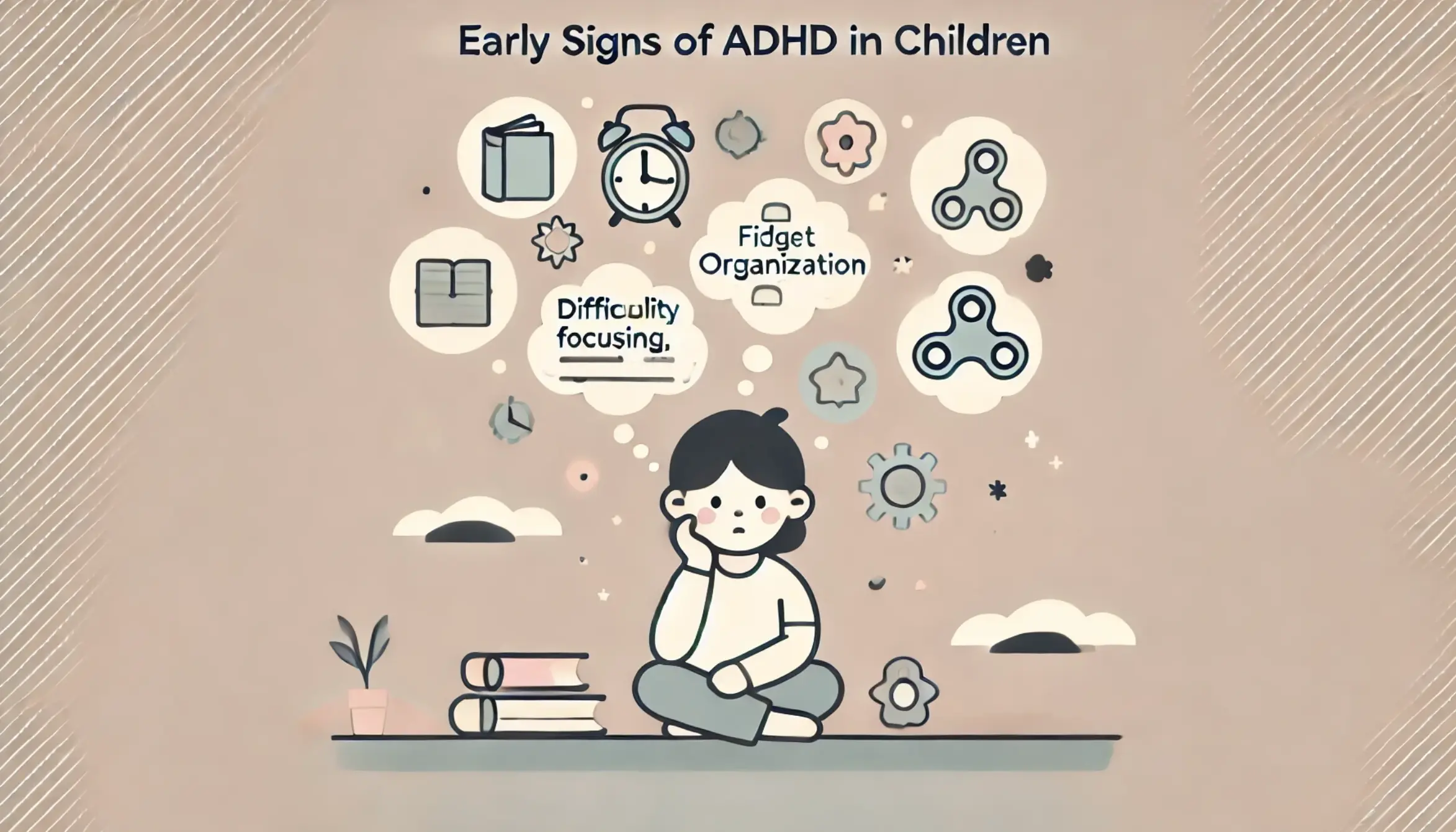Autism spectrum disorder has long been the focus of extensive research and awareness campaigns, shedding light on its prevalence and characteristics. However, there’s a critical aspect that often remains in the shadows: autism in women. Recent studies, such as the one published in the Journal of the American Academy of Child & Adolescent Psychiatry, have highlighted the unique challenges and experiences that women on the spectrum face.
In this blog, we’ll unveil these essential insights, delving into the signs, diagnostic disparities, and the broader impact of autism on women’s lives. Let’s explore this hidden side of autism together.
What Factors Contribute to Female Autism?
The factors contributing to autism in females are a subject of increasing research and interest within the scientific community. Traditionally, autism has been predominantly associated with males, leading to underdiagnosis and missed opportunities for early intervention in females. However, several key factors contribute to the manifestation of autism in women.
- Biological Differences: Studies suggest genetic differences between males and females may play a role. It’s believed that females might require a higher genetic or environmental “load” to develop autism, making them less susceptible to the disorder.
- Camouflaging and Masking: Many women with autism exhibit exceptional social camouflaging skills, making their symptoms less apparent. They may imitate or mimic social behaviors, making it challenging to discern their struggles with communication and relationships. This masking can make it challenging for clinicians to diagnose them accurately.
- Diagnostic Bias: Historically, diagnostic criteria was based on male-centric presentations of autism. Clinicians are now recognizing that the female presentation of autism can be distinct and needs more inclusive diagnostic guidelines.
- Co-occurring Conditions: Research shows that women are two times more likely to have conditions such as anxiety, depression, eating disorders, and psychological distress, making it much more likely that autistic women also have co-occurring conditions such as these. This can complicate the diagnostic process in women with autism.
Distinguishing Variations Between Men and Women with Autism

Distinguishing variations between men and women with autism is a critical aspect of understanding the spectrum’s diverse presentation. In the past, autism research predominantly focused on males, leading to an underrepresentation of females in diagnostic criteria and clinical studies.
This male-centric perspective created the misconception that autism primarily affected men, overlooking the unique characteristics displayed by women on the spectrum. Autistic women often exhibit less profound or more obscure symptoms than their male counterparts.
They may engage in social mimicry, imitating neurotypical behaviors, which can mask their struggles with social communication and relationships. This masking phenomenon can lead to delayed or inaccurate diagnosis, as clinicians and educators might not recognize these signs of autism in girls and women.
Genetic factors may also contribute to differences in autism presentation. Some research suggests that females require a higher genetic “load” to manifest autism, which could account for variations in symptom severity.
Furthermore, hormonal and neurological disparities may influence how autism manifests in men and women. These differences might affect sensory sensitivities, executive functioning, and emotional regulation, all of which play a role in shaping the unique features of autism in females.
Societal and cultural factors are not to be underestimated. Gender stereotypes and stigmas, social expectations, and biases can hinder the recognition of autism in women, as their behaviors may be attributed to shyness or other non-autistic factors.
Signs of Autism in Women
Recognizing the signs of autism in women is crucial for early diagnosis and tailored support. Often, these signs manifest differently compared to their male counterparts, which can lead to underdiagnosis or misdiagnosis.
Here are some key symptoms of autism in women:
- Special Interests: Like their male counterparts, women with autism may develop intense, focused interests. These interests can become a way of coping with social challenges and can be a crucial indicator.
- Sensory Sensitivities: Heightened sensitivity to sensory stimuli, such as noise, light, textures, or smells, is common among autistic women. They may employ various strategies to cope with these sensitivities.
- Difficulty with Social Relationships: Challenges in forming and maintaining friendships, difficulty in understanding social cues, and a tendency to feel isolated are often seen in autistic women.
- Rigidity and Routine: Women on the autism spectrum may display a strong preference for routine and may struggle when faced with unexpected changes or disruptions in their daily schedule.
- Emotional Regulation: Difficulty managing strong emotions, leading to emotional dysregulation and meltdowns, is another characteristic to watch for.
- Nonverbal Communication Differences: Look for challenges in nonverbal communication, such as making and maintaining eye contact, understanding body language, or using appropriate facial expressions.
A Lifelong Journey with Autism: The Concern of Under-Diagnosis in Women
Autism is a lifelong condition characterized by a broad range of developmental differences and challenges in social communication, sensory processing, and behavior. While considerable progress has been made in understanding and diagnosing autism, there is a persistent issue that often leads to the underdiagnosis of women on the spectrum.
One of the primary reasons for underdiagnosis in females is the distinct way in which autism often presents in women. Females are presumed to be more in favor and need of social interactions and acceptance, they tend to learn to “mask” or mimic social behaviors from a young age, making it less apparent that they are struggling with social interaction and communication. As a result, they may fly under the radar, unaware of the reason for their struggles- while going undiagnosed or receiving a diagnosis much later in life.
Societal gender stereotypes also play a significant role in the underdiagnosis of women with autism. Clinicians, educators, and even family members might unintentionally attribute their behaviors to shyness, timidity, anxiety, or emotional fluctuation. One can even consider that women exhibit a greater degree of complexity (or hysteria in some cases) in certain aspects compared to men – making it harder to recognize them as signs of autism.
These missed diagnoses can have far-reaching consequences, as they deny women access to the early interventions and support that are vital for helping individuals with autism develop essential skills and cope with their challenges effectively.
Addressing the underdiagnosis of women with autism requires raising awareness, providing training to healthcare professionals, educators, and caregivers, and adopting a more nuanced understanding of how autism can manifest differently in females. By doing so, we can ensure that all individuals, regardless of gender, receive the support and resources they need to lead fulfilling lives.
Evaluating and Diagnosing Autism in Women in Oakland, CA

Evaluating and diagnosing autism in women is a critical endeavor that requires a nuanced approach. Autism in women often presents with more subtle signs and symptoms, making it more challenging to identify. If you or a loved one suspect autism, it’s vital to seek professional evaluation.
In Oakland, you can turn to APS for expert assessment and diagnosis. APS is dedicated to serving the unique needs of individuals on the autism spectrum, including women. Our experienced team of clinicians and specialists understands the distinct characteristics of autism in females and will provide a thorough, comprehensive evaluation to ensure an accurate and timely diagnosis.
Reaching out to APS is the first step towards gaining a better understanding of autism and accessing the appropriate support and resources. Whether you’re a parent concerned about your child, an adult seeking answers, or a caregiver looking for guidance, APS is here to help.
Contact APS today to schedule an evaluation and embark on a journey of understanding, support, and empowerment. Your path to a clearer diagnosis and a brighter future for yourself or your loved one begins with that first step. Don’t hesitate to reach out today for the assistance and answers you’ve been seeking!
Sources & References
https://www.healthline.com/health/autism-in-women https://adultautismcenter.org/blog/autism-and-women-heres-what-you-need-to-know/





